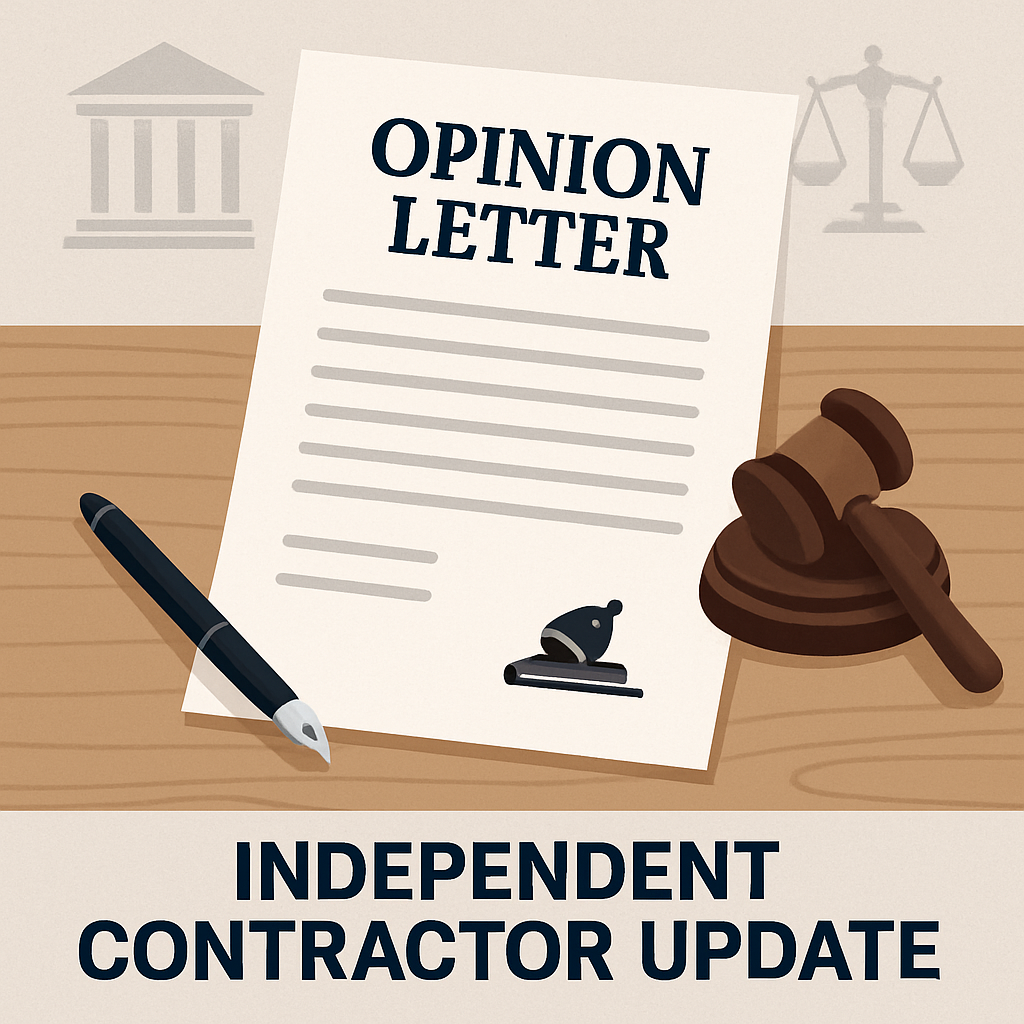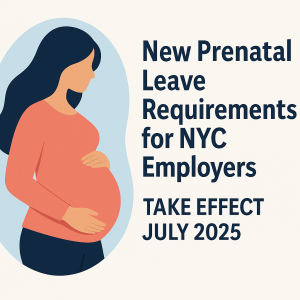DOL Reinstates Independent Contractor Opinion Letter: Key Implications for Gig Economy Employers
Overview
In a significant policy reversal, the U.S. Department of Labor (DOL) has reinstated a 2019 opinion letter favoring independent contractor classification for gig workers. The reinstated guidance, now reissued as Opinion Letter FLSA2025-2, provides a more business-friendly interpretation of independent contractor status under the Fair Labor Standards Act (FLSA), particularly for companies operating digital platforms and marketplace models.
Background
Following a leadership change within the DOL’s Wage and Hour Division, the agency formally withdrew the 2024 independent contractor rule issued under the Biden administration and revived the Trump-era guidance originally issued in 2019. The opinion letter specifically analyzes workers engaged through a Virtual Marketplace Company (VMC), such as rideshare or delivery platforms, and concludes these workers are properly classified as independent contractors.
Key Findings from the Opinion Letter
The DOL applied the longstanding six-factor “economic realities” test, reaching the following conclusions:
- Control: The VMC exercises minimal control. Workers freely select assignments, set schedules, and may work for multiple platforms simultaneously.
- Permanency: There is no expectation of ongoing or exclusive work. Engagements occur on a job-by-job basis.
- Investment: Workers supply their own equipment, tools, and bear associated costs.
- Skill and Initiative: Workers exercise independent judgment in managing their earnings and do not receive employer-provided training.
- Profit or Loss: Profitability depends on workers’ personal decisions regarding work volume, pricing, and scheduling.
- Integration: The VMC functions as a referral platform rather than directly providing services to end users, distinguishing itself from traditional employment models.
Implications for Employers
While opinion letters are not legally binding, they reflect how the DOL intends to approach enforcement under the FLSA. This latest opinion letter signals a return to a more flexible interpretation that may benefit gig economy companies and others utilizing independent contractors.
Cautionary Notes
- State Law Still Applies: Many states, including California, New Jersey, and Massachusetts, apply more restrictive “ABC” tests for independent contractor classification that may reach different conclusions than federal standards.
- Facts Remain Critical: The classification of workers will always depend on a factual analysis of the working relationship. Labels alone do not control the outcome.
Next Steps for Employers
- Review current independent contractor agreements and practices in light of the DOL’s updated interpretation.
- Remain mindful of state-specific rules that may impose stricter classification requirements.
- Monitor ongoing litigation and further regulatory developments that could affect contractor status nationwide.
For questions or assistance with worker classification issues, please contact Chaim Book at cbook@booklawllp.com or Sheryl Galler at sgaller@booklawllp.com.


